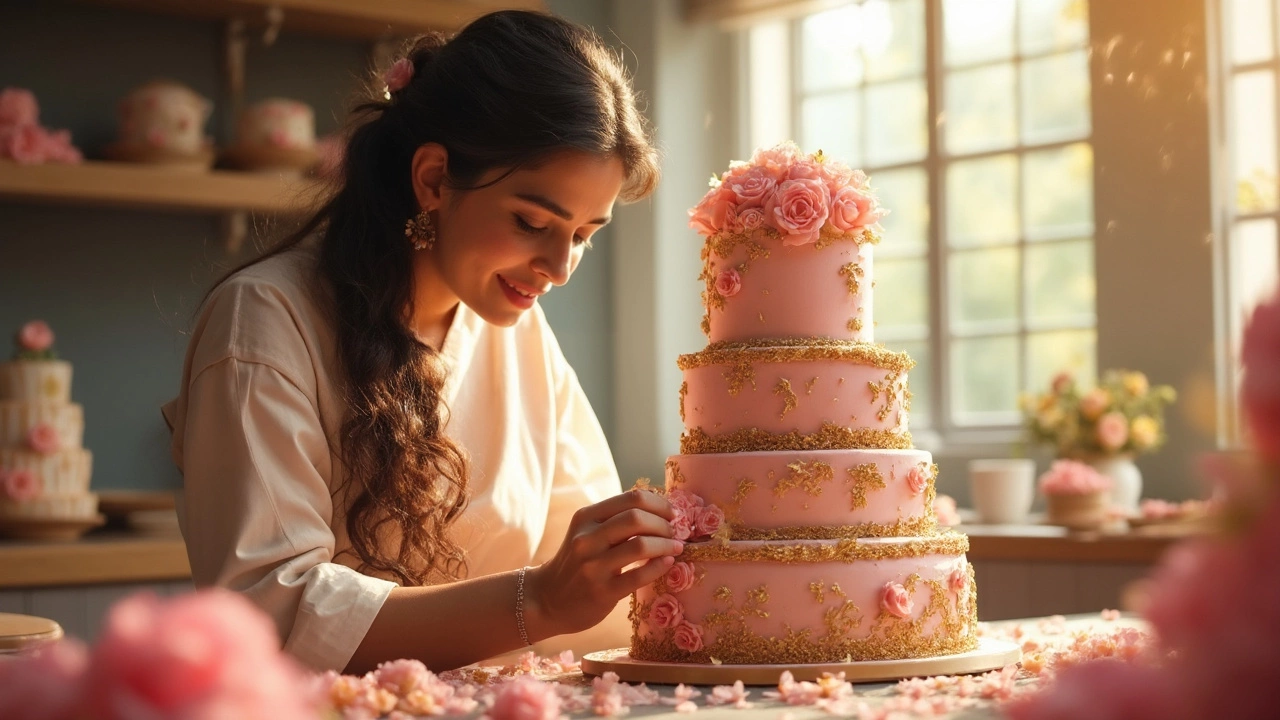Wedding Bakery: Your Go‑to Guide for Custom Cakes and Desserts
When planning a wedding bakery, the service that creates cakes, pastries, and desserts specially designed for a couple’s ceremony and reception. Also known as bridal bakery, it blends flavor, design, and tradition to match the wedding theme.
A wedding cake, the centerpiece dessert often layered, flavored, and decorated to reflect personal style is just one offering. Modern wedding bakery services also deliver cake slices, cupcake towers, dessert tables, and even sugar‑crafted signatures. The trend toward mixed‑dessert stations means couples can showcase multiple flavors without overloading the palate. Because of this, selecting the right bakery vendor has become a strategic part of the overall wedding plan.
Key Elements Every Wedding Bakery Must Cover
First, a bakery needs a solid cake tasting, a session where couples sample flavors, fillings, and frosting options before signing a contract. Tasting helps lock down the budget, set realistic expectations, and avoid last‑minute flavor changes. Second, the bakery must handle custom wedding desserts, personalized sweets like monogrammed macarons, mini pies, or flavored doughnuts that echo the wedding colors. These add a unique touch and often become Instagram‑worthy moments.
Third, logistics matter. A reliable bakery vendor coordinates delivery dates, sets up on‑site cutting stations, and ensures the cake stays fresh through transport. Fourth, pricing transparency is crucial; couples should know the cost per slice, service fees, and any extra charges for special designs. Finally, the bakery’s creative team works closely with florists and décor planners to integrate edible elements into the visual theme, linking the dessert suite to the overall aesthetic.
These components form a clear semantic chain: wedding bakery encompasses custom wedding desserts, wedding bakery requires skilled cake tasting sessions, and bakery vendors influence the final wedding cake design. Understanding these relationships helps couples ask the right questions and compare providers effectively.
Budget considerations often drive decisions. The average UK couple spends between £1,000 and £2,500 on a wedding cake, but adding a dessert table can raise the total by 30‑40 percent. Smart couples offset this by negotiating bulk discounts, opting for simpler icing, or selecting seasonal ingredients. Seasonal fruit flavors, for instance, cost less and taste fresher, letting the bakery deliver value without sacrificing taste.
When you meet potential vendors, look for certifications, health inspections, and portfolio diversity. A bakery that has crafted both classic tiered cakes and modern dessert bars demonstrates flexibility. Ask for a written contract that outlines delivery timelines, setup requirements, and a clear cancellation policy. This reduces stress on the big day and guarantees the edible centerpiece matches the visual one.
Another growing trend is the “dry‑run” rehearsal cake. Some couples schedule a mini‑cake test during the rehearsal dinner to see how the cutting flow works and to confirm serving sizes. This practice links the wedding bakery to event timing, ensuring the cake arrives on schedule and the cutting ceremony runs smoothly.
Choosing a bakery also means thinking about dietary restrictions. Offering gluten‑free, vegan, or nut‑free options shows inclusivity and can be handled by many modern bakeries without extra cost if discussed early. Communicating these needs during the cake tasting session ensures the final product meets all guests’ expectations.
In short, a wedding bakery is more than a cake maker; it’s a partner that blends culinary art, design, and logistics. Below you’ll find articles that walk you through budgeting tips, tradition explanations, speech ideas, and the latest trends, giving you a full picture of what to expect from top bakery vendors and how to make the most of your sweet celebration.
Wondering what to call the pro behind those jaw-dropping wedding cakes? This article uncovers the real title for a professional cake maker, especially those specializing in wedding cakes. Get clarity on their skills, training, and what makes their job different from your average baker. Find tips for choosing the right cake maker for your big day. Plus, learn some fun facts about cake artistry!
